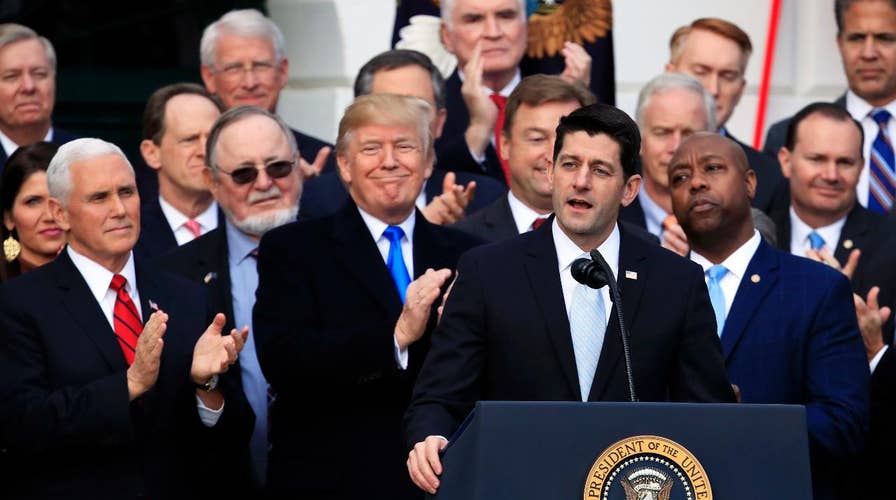GOP tax reform already breathing life into US economy?
Tax cuts motivating companies to offer bonuses, make new investments.
The formula is simple: When the economy accelerates, employers compete for employees and wages increase. I experienced this during my 17 years as CEO of a national quick-service restaurant chain. The stronger the economy, the harder it was to get good employees. Conversely, when growth is weak, as it was during most of the Obama presidency, employees compete for jobs and wages stagnate.
President Trump’s regulatory rollback is driving an economic surge few anticipated. Tax reform promises to accelerate that growth by encouraging business investment and eliminating the perverse incentives that drive companies, jobs and investments to other countries. The true test for these pro-growth policies is whether they result in a more participatory economy, in which workers’ incomes meaningfully increase over the long run. The early results are promising.
The left’s proposed solution to wage stagnation has been for government to mandate increased wages by more than doubling the minimum wage from $7.25 to $15 an hour. That causes employers to eliminate jobs and reduce hours to offset their increased costs. To increase wages without these unintended consequences, you need economic growth.
Democrats once understood that. President Kennedy referred to economic growth as the “tide that lifts all boats.” Yet no Democrats voted for tax reform in December. House Minority Leader Nancy Pelosi warned of “Armageddon.” Sen. Bernie Sanders called it “a disaster.” Sen. Elizabeth Warren claimed Republicans were “just delivering one gut punch after another to hardworking people.”
To continue reading on the Wall Street Journal click here.

